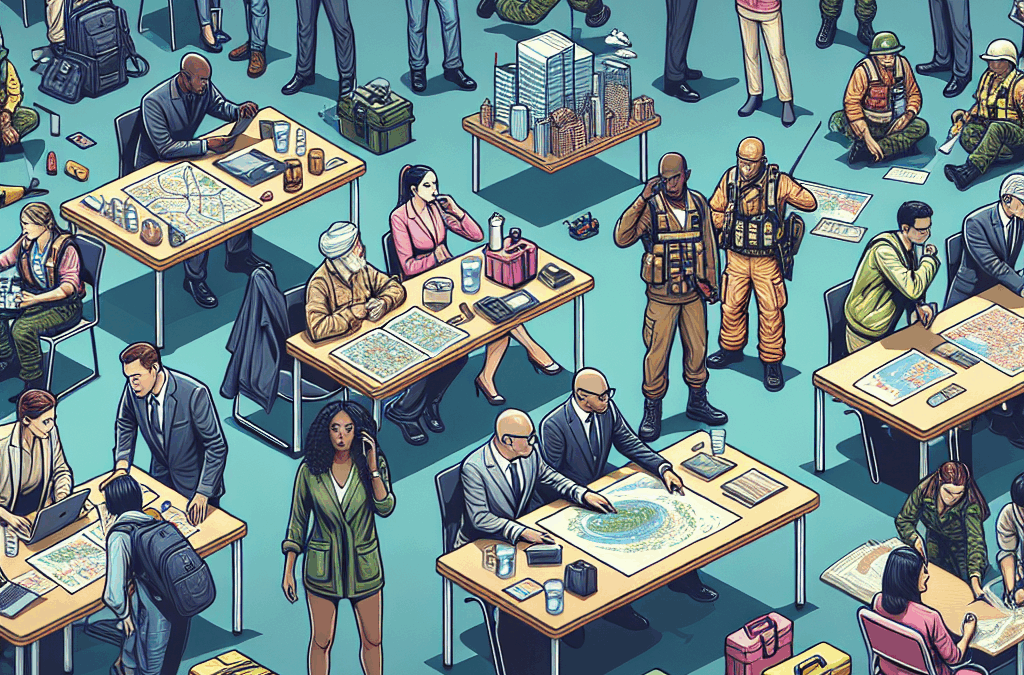In an unpredictable world, the phrase “better safe than sorry” takes on a whole new meaning when it comes to emergency preparedness. By being proactive rather than reactive, you can significantly reduce the impact of unforeseen events. Understanding the risks in your area and preparing accordingly can mean the difference between chaos and calm in times of crisis.
*Understanding the Risks: Assessing Potential Emergencies in Your Area**
Every community has its unique set of challenges. Natural disasters like hurricanes, earthquakes, floods, or wildfires might pose significant threats depending on where you live. Urban areas may face different risks such as industrial accidents or civil disturbances. Start by conducting a thorough assessment of potential emergencies that could affect you and your family. Consult local government resources, weather services, and community organizations to gather information about historical incidents and possible future threats. Recognizing these risks is your first step toward building a robust emergency plan.
*Building an Emergency Kit: Essentials for Every Household**
Once you have identified the types of emergencies that are most likely to occur, it’s time to assemble an emergency kit tailored to your needs. This kit should contain essential items such as water (one gallon per person per day for at least three days), non-perishable food supplies, a flashlight with extra batteries, first aid supplies, and any necessary prescription medications. Don’t forget important documents—copies of identification, insurance policies, and medical records—stored in a waterproof container.
Consider including personal comfort items like blankets or toys for children; emotional well-being is just as crucial during stressful situations. Regularly check expiration dates on food and medications to ensure your kit is always ready for action.
*Creating a Family Emergency Plan: Communication and Evacuation Strategies**
An effective emergency response requires clear communication among family members. Sit down together to create an emergency plan that outlines how everyone will respond during various scenarios—from natural disasters to personal crises. Identify safe meeting locations both near home and farther away if evacuation becomes necessary.
Develop strategies for communication during emergencies as well—this could involve designating an out-of-town contact who can relay messages if local lines are down or practicing how to use text messaging over phone calls when networks become congested.
Thank you for reading this post, don't forget to subscribe NOW for FREE!
*Training for Emergencies: First Aid, CPR, and Safety Drills**
Knowledge is power when it comes to survival during crises. Equip yourself with skills by investing time in first aid training courses or CPR certifications; these invaluable skills can save lives—not only your own but also those around you. Conduct regular safety drills with your family so that everyone knows what steps to take when disaster strikes—practice fire evacuations or earthquake safety procedures until they become second nature.
*Staying Informed: Utilizing Technology and Community Resources for Preparedness**
In today’s digital age, staying informed is easier than ever before. Leverage technology by downloading emergency alert apps specific to your region that provide real-time updates on severe weather conditions or local hazards. Follow social media accounts of local authorities for tips on preparedness activities in your community.
Community resources such as neighborhood watch programs or disaster response groups can also be instrumental in enhancing overall preparedness efforts through collaboration and information sharing.
By actively engaging with these facets of emergency preparedness—assessing risks, building kits, creating plans, acquiring training, and utilizing technology—you empower yourself and others around you to navigate uncertainties with confidence! Remember: being prepared isn’t just about survival; it’s about safeguarding peace of mind when life throws its curveballs!






